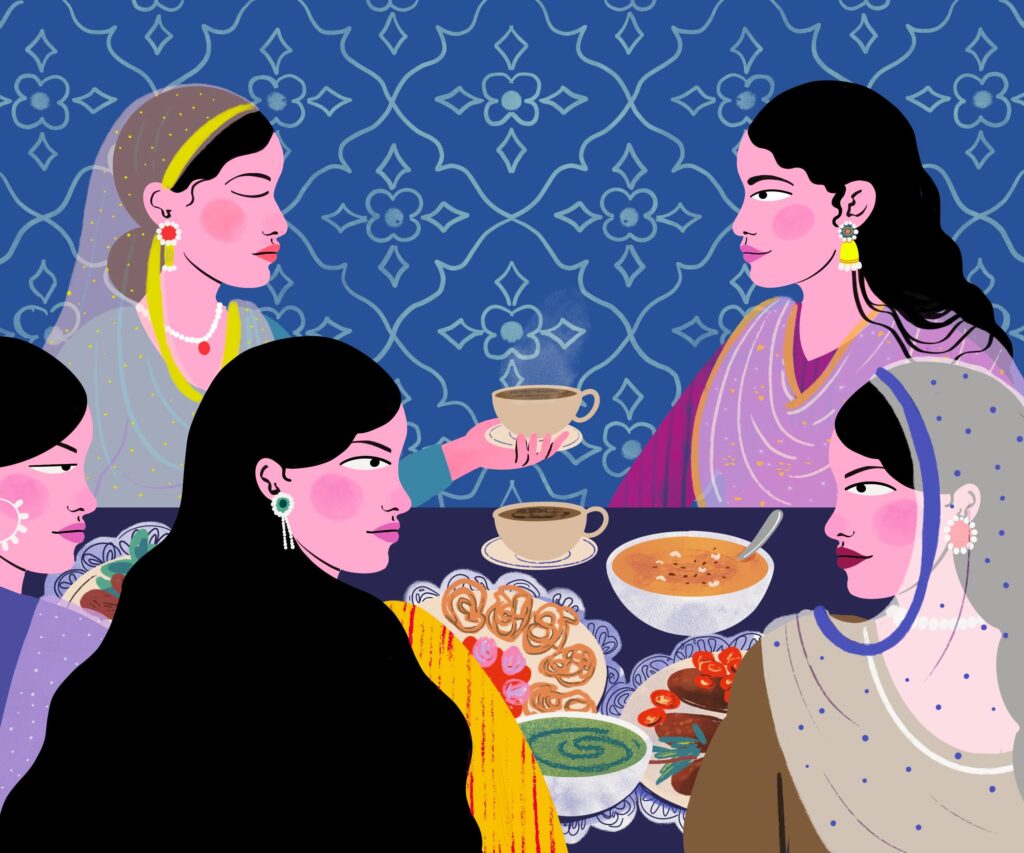
The Revolutionary Women in Islam
I remember the summer I fell in love with the women of Islam.
I remember the summer I fell in love with the women of Islam. It was when I read stories of women, young and elderly, who were part of the War of Karbala. They may not have fought in the frontlines but heralded the message of righteousness across the land. Even as prisoners of war,they were defiant and courageous. Bibi Zainab, the daughter of Bibi Fatima Zahra, emerged as aleader; her journey from being the princess of Najaf, to being brought back as a prisoner is evidence of women’s passion driving key moments in Islamic history. My mind invokes Urdu couplets every time I think of these women.
“Darbar-e-Shaam qilla-e-khybar se kam na tha,
Aur Zainab ka inquilab Haider se kam na tha”
(The court of Damascus was no less than the war of Khyber, and Zainab’s revolution was no less than that of Haider)
Having spent my childhood in a Shia Muslim home, I grew up listening to stories of Bibi Khadija – not solely as the wife of Prophet Muhammad (P.B.U.H.), but as the businesswoman who ruled the Arab markets. The woman who dictated market forces and provided to her younger husband, the finances he needed to spread the Holy words of Islam. When I heard her story, I too wanted to be powerful enough to support a revolution.
Another woman whose reference was common in our house was Bibi Fatima Zahra, who was also the Prophet’s daughter and Ali’s wife. She fought a battle at court for rightful ownership of property when women were not to participate in legal proceedings. Inspired by her, I always respond to my inner voice and choose my own battles. I still receive a lot of slack for it, but I feel if I can make a difference, it is a fight worth having.

“I recall Nazr, the setting of tables with elaborate dishes” – Illustration by Reya
“bol ki sach zinda hai ab tak, bol jo kuchh kahna hai kah le…”
(Speak that truth is still alive, speak all that is yet to be said)
From her, I also learned that prayer with pure intentions can manifest dreams. Even without the miracle of a wish come true, true prayer is meditation. These women from Islamic history have defined my politics, but more importantly, they have uplifted my spirit. As I learned more, my ideaof rituals also noticed shifts. I recall Nazr/Niyaz, the setting of tables with elaborate dishes. I thought of how the men in a gathering taste the food first, and lead the prayers, processions, the maatam. However, with the Nazr of Bibi Zahra; it is the women who feast. Memories of these evenings are close to my heart. The women of the family filled the house with their voices, stories, and the inviting fragrance of incense sticks. Watching the hypnotic swirls of the incense smoke, I came to accept that rituals are an intrinsic part of my life on account of the women who orchestrate them.
Even today, I search for the spirits of these magical women of my childhood. Often, I catch glimpses of them among my friends and loved ones. They enrich my life and practice as a Shia woman. I cherish these remnants of the past for enchanting my present, leaving after-notes of sandalwood, echoes of warm laughter, rendering my own philosophy distinctly femme.


Leave a Reply